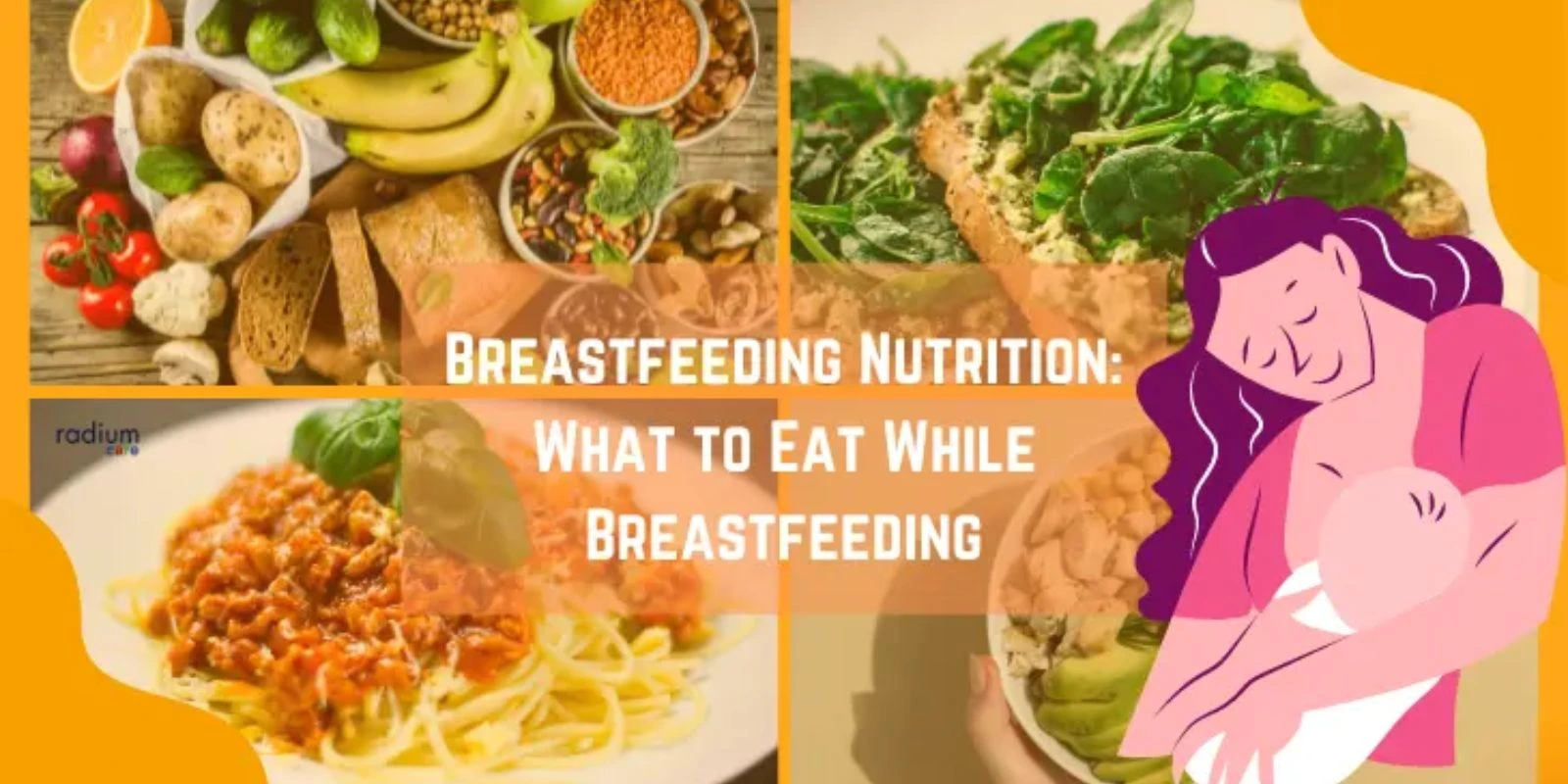
Breastfeeding Nutrition: What to Eat While Breastfeeding
Introduction
Breastfeeding is a beautiful and really important bonding between a mother and her baby. Being a breastfeeding mom is great for ensuring that your body has proper nutrition, which will benefit both yours and the health of your little one. Here is the information concerning breastfeeding nutrition. It will give you guidance as to what you can eat while breastfeeding. This is just a few of the necessary nutrients; hence, understanding these will ensure you provide for the appropriate balanced diet to achieve optimum nutrition for you and your baby both.
- The Importance of Nutrition While Breastfeeding: Discuss the importance of nutrition during the period of breastfeeding. Explain how an appropriate balanced diet enables the production of breast milk, assists in recovery from the period following delivery, replenishes nutrient stores, and contributes towards the good health of both mom and baby.
- Key Nutrients for Breastfeeding Moms: Breast-feeding mothers should be given some of the good nutrients they should consume. Of course, these nutrients would come from the following macronutrients: carbohydrates, proteins, and healthy fats. Then, of course, there are also the following micronutrients, vitamins, and minerals that could either be supplied or needed by them.
- Foods to Include in a Breastfeeding Diet: As such, here is the sum list of the absolute best foods that could benefit breastfeeding mothers. It should be noted that these include diverse fruits, vegetables, whole grains, lean proteins, and dairy or non-dairy with healthy fats. This should then be added to the list of necessities of nutrient-dense foods rather than processed or sugary foods.
- Hydration and Fluid Intake: Hydration with breastfeeding is extremely important, and you can expect increased fluid needs during this stage of lactation. How can you keep hydrating? Drink water, herbal teas, and other healthful beverages all day long, both in terms of quantity and quality.
- Foods to Limit or Avoid: Discuss certain foods that would affect the content of the breast milk or cause distress in the infant. The additive foods include caffeine, alcohol, spicy food, and allergens and also the excessive intake of fish that have high mercury levels. Advise on moderation or avoidance based on the case.
- Meal Planning and Snack Ideas: Provide ideas for prep of meals, snack suggestions, and nutrients with flexible planning that are great-tasting, easy, and supportive of breastfeeding. Offer examples of meal ideas: breakfast, lunch, dinner, snacks, and sometimes healthy, grab-and-go options available.
- Seeking Professional Guidance: Review with a woman the necessity of a private consultation with a health care provider or registered dietitian. No two women are alike, and professional consultation can help address any issues and restrictions.
Conclusion
A good diet will feed the mother as well as her baby – an extremely important aspect in breastfeeding. Thus, by really paying particular attention to your diet, including all of the necessary nutrients, staying hydrated, and avoiding all of the nasty foods, you’ll be sure to be providing the best nutrition for your baby. Remember, a healthy, well-nourished mom is going to be better equipped to really appreciate the breastfeeding process and give the best start in life for her baby.
FAQS:-
Ques: Why is nutrition important while breastfeeding?
Ans: Nutrition is important during breastfeeding because the quality of breast milk depends on the diet of the mother. An adequate diet assures you are delivering your baby with all the nutrient requirements for growth and development. Proper nutrition also facilitates recovery after giving birth and ensures your health and energy.
Ques: What are the main nutrients breastfeeding mothers should emphasize?
Ans: Breastfeeding mothers should pay attention to the intake of sufficient macronutrients such as carbohydrates, proteins, and healthy fats and micronutrients such as vitamins and minerals. Key nutrients are calcium, iron, omega-3 fatty acids, vitamin D, vitamin B12, and folate. These nutrients are provided to you and your baby for health.
Ques: What foods should I include in my breastfeeding diet?
Ans: Include a variety of fruits, vegetables, whole grains, lean proteins (such as poultry, fish, beans, and tofu), low-fat dairy products or plant-based alternatives, and healthy fats (like avocados, nuts, and seeds). Aim for a balanced diet that provides a range of nutrients. It’s also beneficial to include foods rich in breastfeeding-friendly nutrients like iron, calcium, and omega-3 fatty acids.
Ques: How important is hydration during breastfeeding?
Ans: Hydration is basic when you are breastfeeding. Ample fluids will help meet the increased fluid needs of your body. Herbal teas, infused water with fruits, and other healthy fluids will help hydrate you along with water. Hydration is helpful in producing milk and gives you the boost to be energetic too.
Ques: Are there any foods to limit or avoid while breastfeeding?
Ans: Some breastfeeding mothers may discover that, for instance, some particular foods impact their baby’s digestive system or worsen their baby’s discomfort. Common culprits include caffeine, alcohol, spicy foods, allergenic foods such as peanuts or cow’s milk, and fish containing mercury. Pay attention to how your baby reacts to different foods and adjust your diet accordingly.
Ques: Do I need to take any supplements while breastfeeding?
Ans: Most breastfeeding women can get all the nutrients they require from a healthy diet. However, your doctor may recommend that you take some supplements, like a prenatal vitamin or vitamin D, depending on your situation. Consult your healthcare provider for tailored advice.
Ques: Can I lose weight while breastfeeding?
Ans: It’s possible to lose weight gradually while breastfeeding, but it’s important to do it in a healthy and gradual manner. Aim for a balanced diet and gentle physical activity. Rapid weight loss or extreme dieting can affect milk supply and nutrient levels. Consult with a healthcare professional for guidance on weight management while breastfeeding.
Ques: What if I have specific dietary restrictions or allergies?
Ans: Consider making appropriate adjustments to your diet if you have certain food allergies or dietary restrictions. Consult a registered dietitian or other health professional. They will be able to help you develop your individualized meal plan for breastfeeding while taking into consideration your dietary needs.
Remember that during breastfeeding, maintaining a healthy and balanced diet is essential for both you and your little one. See to it that you prioritize your nutrition, have ample amounts of hydration, and come up with consultations with health professionals for the right advice that would help you be as healthy as possible to provide great nutrition for the baby.
